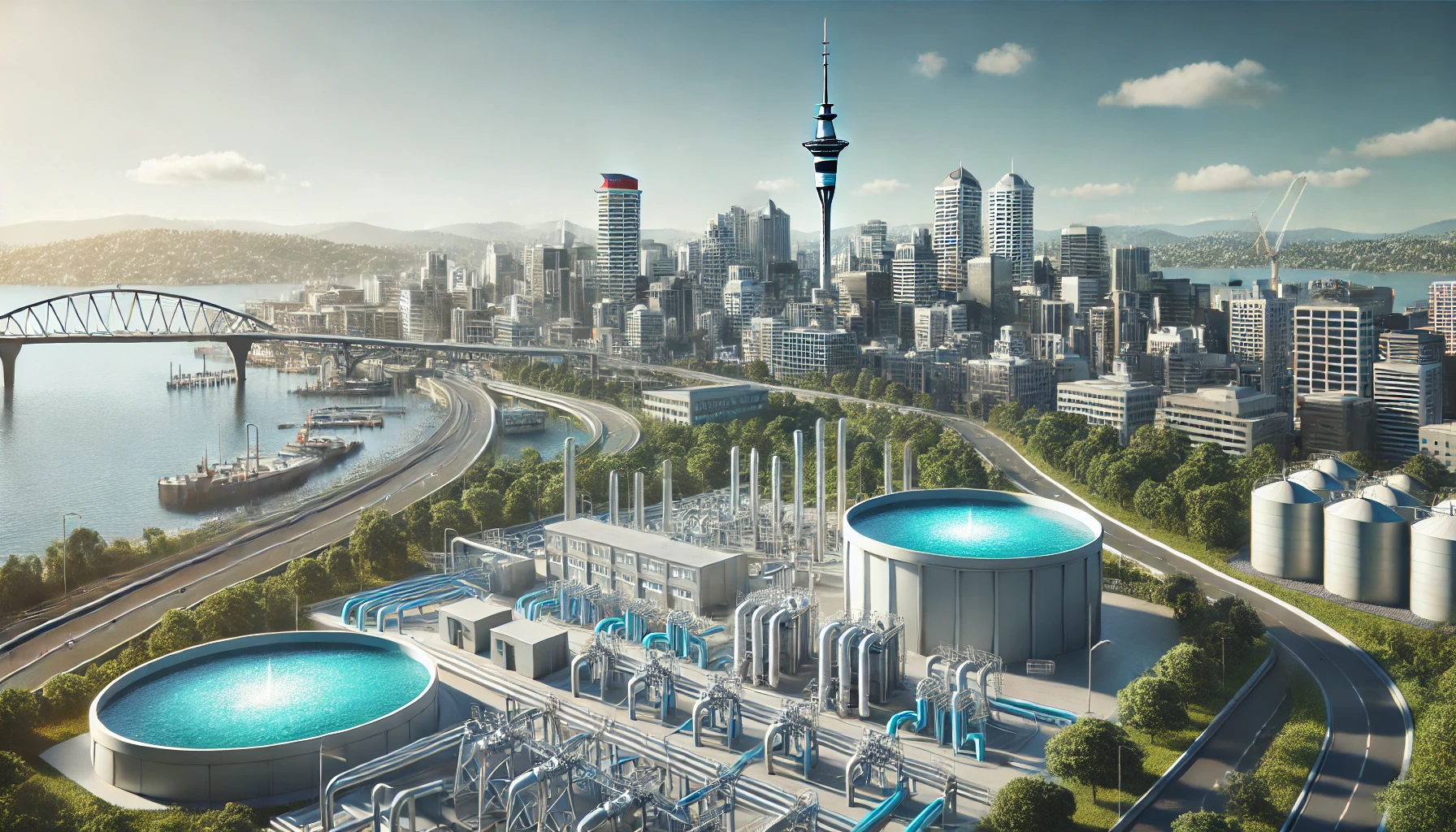Auckland Water Charges to Rise at a Slower Rate Under New Watercare Charter
The primary objective of the reform is to ensure that water services remain affordable while guaranteeing sustained investment in critical infrastructure.

- Country:
- New Zealand
Auckland households are set to benefit from a significant reduction in planned water charge increases following the passage of the Watercare Charter into law. The new charter, championed by Local Government Minister Simon Watts and Auckland Minister Simeon Brown, will halve the previously forecasted hikes in water charges, offering financial relief to consumers.
The charter forms part of a broader financial restructuring of Watercare, Auckland’s water service provider, which was developed collaboratively between Auckland Council and the Government under the ‘Local Water Done Well’ initiative. The primary objective of the reform is to ensure that water services remain affordable while guaranteeing sustained investment in critical infrastructure.
Reversing Expensive Reforms and Restoring Local Control
Minister Watts emphasized that the Government acted swiftly to overturn Labour’s Three Waters reform, which had faced widespread criticism for its cost implications and governance structure. The Government’s new framework aims to return control of water assets to local authorities while maintaining high standards for water service delivery.
“The previous Government’s Three Waters reforms were creating challenges across the country, leading to increased bureaucracy and higher costs for ratepayers. By implementing the Watercare Charter, we are ensuring that Auckland’s water services are safe, resilient, reliable, and environmentally sustainable, all while keeping costs as low as possible for households,” said Mr. Watts.
Substantial Savings for Auckland Households
Under the Auckland Council’s draft 2024-2034 Long-Term Plan (LTP), drinking water and wastewater charges for connected residential consumers were initially expected to rise by an average of 14.6% on July 1, 2025. However, under the new charter, this increase will be reduced to 7.2%. This follows a similar reduction for the 2024 increase, which was capped at 7.2% instead of the previously proposed 25.8%.
The reductions in projected price hikes are expected to save Auckland households approximately $899 million over the next four years. These savings, according to Minister Watts, will allow families to allocate more funds toward essential expenses such as groceries, housing, and healthcare.
Ensuring Investment in Critical Water Infrastructure
Despite the reduced rate increases, the charter guarantees that Watercare will continue making record investments in water infrastructure, averaging $1.3 billion annually. These investments are vital for maintaining and upgrading Auckland’s water systems and ensuring that the city can keep up with future growth.
Auckland Minister Simeon Brown reiterated the Government’s commitment to balancing affordability with the need for ongoing infrastructure improvements.
“The high cost of living is a top concern for Aucklanders, and we are taking decisive steps to mitigate unnecessary financial burdens. Through Local Water Done Well, we are preventing sharp increases in water charges while ensuring that Auckland’s water infrastructure remains well-funded and future-proofed,” said Mr. Brown.
Regulatory Oversight and Transparency
The Watercare Charter also introduces stronger regulatory oversight through an independent commission that will monitor Watercare’s performance. The commission will ensure greater transparency and accountability regarding water and wastewater services, customer responsiveness, and infrastructure development.
According to Minister Watts, this oversight mechanism will drive efficiency improvements while ensuring that the benefits of cost savings are passed on to consumers.
“The commission’s oversight will help create a system where Watercare is incentivized to invest wisely in asset replacements and upgrades while maintaining service levels that align with consumer expectations. Aucklanders deserve a water system that is not only cost-effective but also reliable and of high quality,” he said.
Boosting Auckland’s Growth and Economic Stability
By implementing the Watercare Charter, the Government is also providing Auckland Council with greater financial flexibility. The reform enables the Council to redirect funds toward other critical infrastructure projects, including transport networks, housing developments, and public amenities.
“Our cities thrive when we have the right infrastructure in place. Because we listened and worked closely with Auckland Council, we have been able to deliver a practical solution that ensures Watercare has the flexibility and revenue certainty needed to fund long-term water projects,” said Minister Watts.
The revised financial strategy is expected to facilitate further housing growth in Auckland, supporting urban expansion and reducing infrastructure bottlenecks. By ensuring the sustainable development of water services, the charter plays a key role in fostering economic stability and urban resilience.
Aucklanders Welcome Water Cost Relief
The reduction in projected water charge increases has been welcomed by many Aucklanders who are grappling with rising living costs. Local advocacy groups have praised the initiative for delivering tangible financial relief while maintaining service standards.
“The cost of living in Auckland is already high, so any measure that helps ease household expenses is a positive step. Knowing that our water services will still be improved while keeping costs under control is reassuring,” said Sarah Thompson, a spokesperson for the Auckland Ratepayers’ Association.
Looking Ahead
As Watercare transitions into this new governance model under the Watercare Charter, the Government will continue monitoring its impact to ensure the financial benefits are realized. The ultimate goal remains the delivery of high-quality water services that are both affordable and sustainable for Auckland’s growing population.
With Auckland facing increasing demand for water due to population growth and climate change challenges, maintaining a balance between affordability and infrastructure investment will be a key priority for policymakers in the years ahead.
The Watercare Charter represents a significant step forward in addressing these challenges, ensuring that Aucklanders receive reliable, cost-effective water services while supporting the city’s long-term infrastructure goals.
- READ MORE ON:
- Auckland Water
- New Watercare Charter
- Simon Watts
- Simeon Brown










